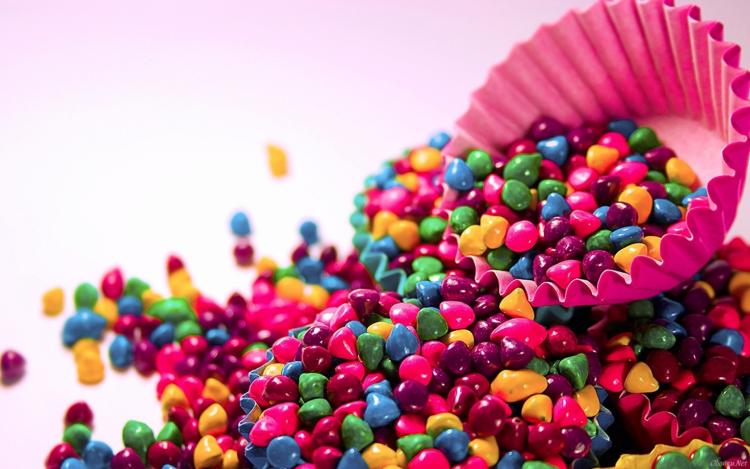A Memoriam to My Sweet Tooth

I have an addiction.
Some people smoke, some people drink. My vice is sugar. Cookies, candy, cakes, and sodas—if it’s sweet, delicious and a total health hazard I consume it in mass quantities. My sugar cravings started young; candy was always used as a bribe for good behavior. Gradually my need for sweets became a self-perpetuated bad habit. In college, candy was an aid to all-night study sessions, as an adult sweets are a much-needed energy boost. As I get older, I am increasingly more concerned about my health. I want to make better food choices, but negative health habits are hard to change.
My interest in kicking my sugar addiction was sparked after viewing a documentary about one of the most influential rap groups of the 90s, A Tribe Called Quest. The film outlined the ascent to stardom of the group’s members Q-tip, Phife Dawg, and Ali Shaheed Muhammad. Although the group dominated hip-hop musical charts with songs such as Bonita Applebum, Electric Relaxation, and Buggin' Out, the group dissolved because of internal conflicts. Fueling tension between the members was Phife Dawg’s public struggle with diabetes. At the height of the group’s popularity, Phife Dawg’s had enormous difficulty regulating his health condition. His weight and health status dramatically fluctuated and resulted in several missed performances and emergency hospital visits.
In the documentary, Phife sits down with his mother to explain how diabetes affects his life, “It’s hereditary. I have it and my son does too,” states his mother. According to the United States Centers for Disease Control and Prevention, the rapper and his mother aren’t alone in their struggle to keep diabetes from controlling their lives. Over 29.1 million people have both type 1 and type 2 diabetes. The difference between type 1 and type 2 diabetes is that type 1 is not preventable, often genetically linked, and occurs when the body cannot make enough insulin. Type 2, the most prevalent form of diabetes, can occur at any age and is commonly linked to poor diet and exercise.
The 2014 documentary Fed Up highlights what has been deemed as America’s obesity epidemic. Instead of focusing on a lack of exercise, the film blames the sugar industry as the culprit of rising obesity-related health risks such as diabetes. Startling facts that the movie presents is that in America, the sugar industry is subsidized by the government. This means that it is profitable to include the tempting sweetener in food products. As a result sugar can be found in almost every food item including milk, flavored yogurt, fat-free foods, salad dressing, and ketchup.
Another surprising fact that is presented in the documentary Fed Up is that sugar is actually scientifically addictive. They show X-rays of a brain stimulated by cocaine and another brain after the consumption of sugar. The photos reveals identical reactions to the dramatically different substances. Another study, conducted by researchers at Connecticut College, replicated these results in an experiment that compared the illegal stimulant and Oreo cookies.
In addition, certain socio-economic groups are more likely to be affected by diabetes and other obesity-related diseases such as African-Americans and Hispanics living in the United States. There seems to be a direct correlation between economics and health. The amount of people in these minorities groups living at or below the poverty level are more numerous than other population groups in the States and this affects the quality of food that is available for consumption. Quite simply, sugary foods are less expensive and more frequently purchased by members of the working class.
These facts are terrifying, but quitting sugar is not easy. For a week, I tried to leave the sweet stuff behind but, to be honest, I failed. In the food log I kept to track sugar my intake for the week I wrote the following:
• Just realized that a pastry counts as sugar…even if it has raisins
• Does this mean breath mints are out?
• I need to eat chocolate. Now.
• Homework time = candy time
As I stated, in times of stress and lack of sleep candy is my go-to sugar fix. However, after doing some research I found a few tips to reduce sugar consumption, including staying full, as filling foods are less likely to leave you hungry and reaching for sugary snacks; avoiding processed foods, if it has a barcode or plastic wrapper it’s bad news; and finally, make it count—sugar is pretty much impossible to avoid. Therefore, if you are going to indulge make sure its quality. If you plan to sink your teeth into to a decadent piece of double chocolate fudge cake, do so after a filling meal so you actually appreciate your descent into the sugary dark side.
It’s almost like sugar and I have taken a vow normally reserved for couples that commit their lives to each other—'til death do us part. I really can’t rid myself from my sweet tooth, but I will be following steps minimize my sugar intake so I can lead a long, healthy life.








